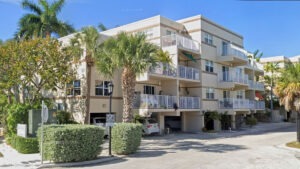A full house at Marathon’s Dec. 3 city council workshop had no shortage of passionate opinions as the board weighs a request for additional building allocations from the state.
But while Tuesday’s session was meant to inform a resolution that will be finalized at the council’s Dec. 10 meeting, public comment frequently strayed into related and vital – yet not immediately pressing – topics, from changes in Marathon’s vacation rental ordinance to construction of affordable housing and potential mechanisms to incentivize or subsidize homeownership for Marathon’s middle-income workforce.
According to a vacant-parcel analysis presented by Planning Director Brian Shea, Marathon has 575 privately-owned vacant parcels split across 12 zoning classifications that could potentially allow for residential development, 123 of which are most likely unbuildable due to their environmental sensitivity. A total of 182 parcels are currently on the Florida Forever Priority List, designated by the state as high-interest lots for eventual acquisition – if an owner is willing – due to their environmental or historical characteristics.
Discourse throughout months of county and municipal surveys and workshops has centered on weighing environmental, traffic and quality-of-life concerns against the financial threat of takings claims, usually triggered if the owner of an otherwise-buildable property is denied the ability to do so.
The Monroe County BOCC has already authorized a request to the state for 220 additional building units to be distributed countywide – the maximum number of permissible units that would preserve a 24-hour hurricane evacuation time for permanent Keys residents, according to state models. Any additional request would require a legislative change to the statutes governing the Florida Keys as an Area of Critical State Concern.
Several speakers criticized current Keys evacuation models, arguing that the risk in a significant hurricane could be greater than projected, as models for the Keys don’t take into account simultaneous evacuations from other nearby counties. They also spoke in favor of using Marathon’s Transferable Building Rights (TBRs) to reduce the possibility of a takings claim on a sending property while providing a building right to other vacant lots, even floating the idea of Marathon purchasing available TBRs for sale to stave off future takings claims at a lower cost.
Others pushed back against the threat of takings cases, claiming that lots sold after the Rate of Growth Ordinance (ROGO) – which limits development in the Keys – was passed, or acquired more recently as remaining allocations dwindled to zero, would have a more difficult case.
“We’ve had one takings case that we have been in litigation over for 22 years,” City Manager George Garrett told the room. “If it gets to the Supreme Court, we hope to win there, but the last (court action) went very unfavorably, and potentially creates dangerous new takings law.”
“You have a number there (on Brian’s sheet) – request as many as we’re going to need,” said former Marathon councilman John Bartus. “The good thing is, you don’t have to dish them out all at once. You can do things like make them a 48-hour evacuation, make them a mix between affordable and single-family owner-occupied. … Dole them out five per year for the next 30 years, and that way, you can take care of the quality of life questions.”
“What’s lost in the discussion is that the hurricane evacuation model is simply the agreed-upon surrogate for carrying capacity, since it’s easier to quantify than all the other environmental damage resulting from overdevelopment,” said Ann Olsen, president of the nonprofit environmental advocacy group Keys Last Stand. “It’s not just the cost of takings – it’s weighing that cost against the economic loss to our fishing and our tourism industry, the cost not just to maintain but actually expand our infrastructure, and possibly potentially irreducible damage to the environment.”
“What’s the minimum number of allocations we can issue each year and defer any risk of a takings case because of (allocations) running out?” asked Sugarloaf Shores Property Owners Association representative Stuart Schaffer. “(City Attorney Steve) Williams says three to four per year for Marathon would defer takings cases. Over 20 years, that’s 80. … Why are we talking about hundreds?”
“While you have the ability to take people’s property rights, you also have the burden to prove that there’s a public benefit for doing that,” said Coldwell Banker Schmitt Real Estate owner Brian Schmitt. “I don’t think there’s anyone in this room who can measurably determine for you the public benefit of taking property rights that are constitutionally protected from over 2,000 people.”
“We are going to face challenges with takings cases, and we’re also on the hook for the county’s,” said real estate agent and current Marathon Housing Coordinator Josh Mothner. “In my opinion, it makes sense for you as a council, with all the responsibilities you have to your constituents, to (avoid) the one you know is going to be a fiscal catastrophe. If you take the rights, you then have control of what to do with them.”
Concerns from some commenters raised the issue of how additional units would be allocated, advocating heavily for land acquisition by the city to be used in 99-year leases for single-family units owned by Marathon’s workforce. Others spoke in favor of pursuing a new “workforce market-rate” classification for building rights, proposed by Monroe County Planning Director Emily Schemper at the BOCC’s Nov. 20 workshop.
Receiving strong preliminary support from the commission, the newly-defined pool could reserve units to be occupied exclusively by those who earn 70% of their incomes as a member of the Keys’ workforce, but could remove the income restrictions and financial implications of deed-restricting a property as a traditional workforce or affordable unit.
Marathon’s request to the county, which will eventually inform a countywide request to the state, will be finalized on Tuesday, Dec. 10 at the council’s regular meeting at 5:30 p.m. at city hall. A special Dec. 19 session of the county commission will finalize the subsequent request to the state.























